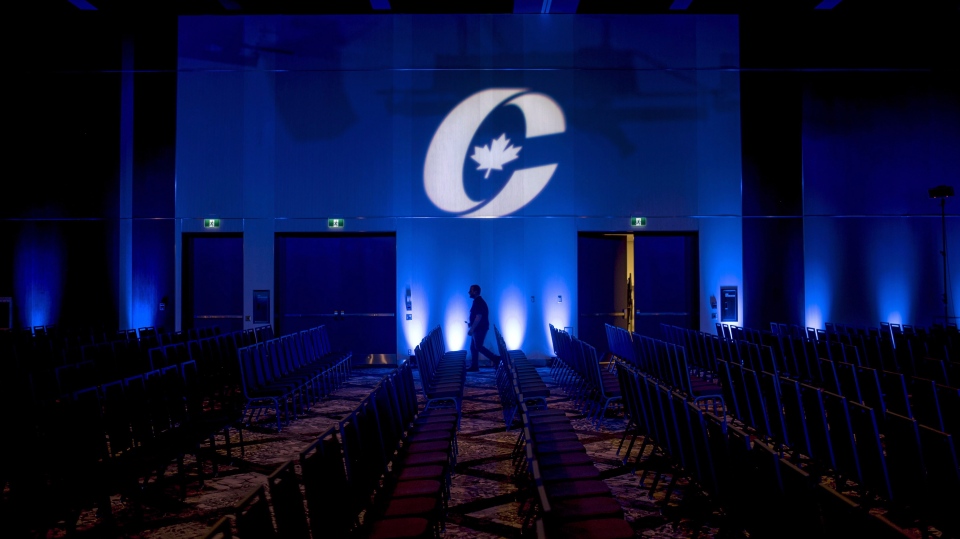
Conservative Leadership Race Begins to Take Shape
The Conservative Party of Canada’s third leadership race in five years is officially underway, with the party’s Leadership Election Organizing Committee (LEOC) setting the rules for the campaign. The party’s new leader will be announced on September 10, with voting taking place over the preceding weeks via mail-in ranked ballot. Campaigns will have until June 3 to sign up new members. Joining the race will require significant fundraising, with a $200,000 entry fee and $100,000 security deposit required from each candidate.
The Key Players
The race already had one entrant well before the rules were set: Carleton MP Pierre Poilievre announced his candidacy the same week as former leader Erin O’Toole was ousted by caucus. To date, Poilievre has been endorsed by a quarter of the Conservative Caucus, including former leader Andrew Scheer. The combative veteran of the Harper era is finding support from the party’s western core, but counts a number of prominent Ontario MPs among his early endorsers. Poilievre has drawn criticism over his support for the truck convoy that paralyzed Ottawa for several weeks in February, and lately has focused his campaigning on carbon pricing and energy issues, linking them – perhaps distantly – to the war between Russia and Ukraine.
After weeks of speculation, former Quebec premier Jean Charest announced his candidacy for leader. Charest is being touted as Poilievre’s main competitor and who will present a more moderate vision for the Party. Charest has been endorsed by several Quebec and Ontario MPs. Charest has a wide political network to draw on from his long career in federal Progressive Conservative circles and as the federalist, Liberal Premier of Quebec, but his past support for carbon pricing and the federal gun registry is already being targeted by Poilievre’s campaign.
Brampton Mayor and former Ontario PC leader Patrick Brown is also expected to enter the race. Brown is regarded as a significant contender because of his high profile and organizational clout with ethnocultural communities in the Greater Toronto Area. At the same time, he carries significant baggage from his time as leader of the Ontario PC Party, which ended in allegations of sexual misconduct and electoral fraud. Brown’s term as mayor of Brampton has been tumultuous as well.
The race is also attracting attention from current and former MPs. Beyond Poilievre, two other caucus members are expected to run. Newly-elected Haldimand—Norfolk MP Leslyn Lewis is hoping to build on her breakout performance in the 2020 race, running a campaign targeted at the social conservative activists who play an outsized role in Conservative leadership races. Parry Sound—Muskoka MP Scott Aitchison also plans to run, with a focus on “character and tone”. As well, recently defeated MP Leona Alleslev has expressed interest in a run, focusing on her private sector resume. Alleslev was elected as a Liberal MP in 2015, re-elected in 2019 as Deputy Leader of the Conservative Party, but defeated in 2021.
Independent Ontario Member of Provincial Parliament Roman Baber has also announced his leadership bid. Baber was removed from the Ontario PC caucus over his public calls to end the COVID-19 lockdowns in early 2021.
Campaign Dynamics
A longer campaign will make for a complex election. A vote in September gives candidates with less recognition the opportunity to establish themselves and find an audience. Jean Charest and Patrick Brown, if he runs, will also need the time to recruit members and build networks across Canada to counter Pierre Poilievre’s perceived advantage with the existing core membership.
At the same time, growing political polarization and the ease of organizing online can give lesser-known candidates the opportunity to identify their supporters and influence the race through the second choices of their voters. In the 2020 race, these breakout candidates were solidly from the party’s right-wing flank: Leslyn Lewis and Derek Sloan, and the second and third choices of their voters gave Erin O’Toole a solid win over Peter MacKay. A similar dynamic in 2022 could prove an asset to Pierre Poilievre, but his victory is far from assured. Jean Charest and Patrick Brown are both formidable campaigners, and could represent an attractive alternative to Poilievre’s partisan pugilism.
In Conclusion
The race to become Conservative Leader already feels starker than those in recent memory. It also represents an important turning point for the party following two disappointing elections. Amid increasing voter fatigue and rising economic anxieties, Conservative members will have an important decision – whether to try once again to grow the party’s tent, taking a pragmatic approach that appeals to moderate, swing voters or to eschew pragmatism for a more populist approach that compels non-voters and other untapped demographics to propel the party to power. This dilemma means the race is likely to offer very different choices for the party’s future, in a way that the races of 2017 and 2020 did not.